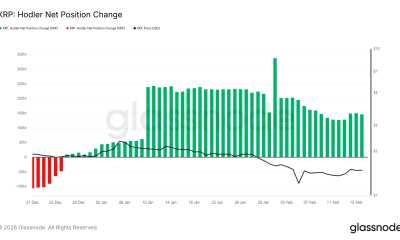Business
Mario Kart World Dominates Japan’s January 2026 Physical Game Sales

Mario Kart World for the Nintendo Switch 2 crushed the competition in Japan’s physical video game sales for January 2026, moving 124,320 units and pushing its lifetime total past 2.79 million copies, according to aggregated Famitsu data released this month.
The racing juggernaut, launched June 5, 2025, alongside the Switch 2 console, maintained its stranglehold on the market despite a 70% drop from December’s blockbuster numbers. Its enduring appeal — fueled by bundle sales, online multiplayer and expansive “connected world” courses — underscores Nintendo’s dominance in a typically slow post-holiday month devoid of major new releases.

Famitsu’s monthly breakdown, covering physical retail sales across all platforms, highlights a top five occupied by just three titles due to dual Switch and Switch 2 editions. Nintendo secured the top publisher spot, with its hardware also leading: the Switch 2 sold 453,433 units (down from 815,632 in December, lifetime over 4 million in Japan), while the original Switch moved 91,109.
Here’s the Famitsu top five physical best-sellers for January 2026:
| Rank | Platform | Title | January Sales | Lifetime Sales |
|---|---|---|---|---|
| 1 | NS2 | Mario Kart World | 124,320 (-70%) | 2,792,701 |
| 2 | NSW | Momotaro Dentetsu 2: Your Town Must Be There Too (Eastern + Western Japan Editions) | 75,503 (-17%) | 1,595,038 |
| 3 | NS2 | Pokemon Legends: Z-A – Nintendo Switch 2 Edition | 68,416 (-63%) | 1,072,570 |
| 4 | NS2 | Momotaro Dentetsu 2 – Nintendo Switch 2 Edition (Eastern + Western) | 67,576 (-29%) | 188,535 |
| 5 | NSW | Pokemon Legends: Z-A | 65,215 (-71%) | 1,660,782 (updated) |
The board game-style Momotaro Dentetsu 2, released November 2025, claimed second with strong legs across original Switch and upgraded editions, reflecting Japanese gamers’ love for localized, social titles. Pokemon Legends: Z-A dual packs rounded out the podium, with the Switch 2 version outperforming its predecessor amid hardware migration.
January’s sluggish pace — typical after year-end rushes — saw no top-five newcomers, allowing evergreen hits to shine. Mario Kart World’s January haul, while down sharply, still outpaced rivals by a wide margin, cementing its status as Japan’s fastest-selling Mario Kart entry ever, bolstered by Switch 2 bundles.
Nintendo’s eShop digital charts paint a similar picture of hybrid dominance. On Switch 2, Dragon Quest VII Reimagined Digital Deluxe led, but Mario Kart World ranked third behind Momotaro Dentetsu 2’s enhanced edition. The original Switch eShop crowned Momotaro #1, with Mario Kart 8 Deluxe lagging at #15 — a sign of the classic yielding to its successor.
| Top 5 Switch 2 eShop | Top 5 Switch eShop |
|---|---|
| 1. Dragon Quest 7 Reimagined Digital Deluxe | 1. Momotaro Dentetsu 2 |
| 2. Momotaro Dentetsu 2 – NS2 Ed. | 2. Dragon Quest 7 Reimagined Digital Deluxe |
| 3. Mario Kart World | 3. Animal Crossing: New Horizons |
| 4. Kirby Air Riders | 4. Minecraft |
| 5. Final Fantasy 7 Remake Intergrade | 5. Pokemon Legends: Z-A |
Late-month Famitsu weekly data (Jan. 26-Feb. 1) underscores the trend: Bandai Namco’s new PS5 title Code Vein II debuted at #1 with 14,452 units, but Mario Kart World held #2 (12,445, lifetime 2.805 million). Other notables included Animal Crossing: New Horizons Switch 2 Edition (#3) and Pokemon holdovers.
Analysts attribute Nintendo’s sweep to Switch 2’s momentum — over 4 million units sold domestically since June — and evergreen software libraries enhanced for the new hardware. Mario Kart World, with its seamless online play and vast track variety, continues to drive console adoption, much like Mario Kart 8 Deluxe did for the original Switch (over 6.5 million in Japan).
Competition stirred with ports like Final Fantasy VII Remake Intergrade (#9 weekly) and Dynasty Warriors: Origins, but Nintendo’s family-friendly staples prevailed. PlayStation 5 trailed in hardware (exact Jan figures unavailable), while Xbox remained negligible.
As February unfolds, eyes turn to upcoming releases like Dragon Quest expansions and potential Switch 2 exclusives. Mario Kart World’s reign signals a robust 2026 for Nintendo in its home market, where physical sales still thrive alongside digital growth.
Business
10 Different Ways to Secure Your Business Premises

Securing your business premises is a key step in protecting your investment and ensuring the safety of your staff, assets, and customers. In today’s world, security threats can take many forms, such as break-ins and data breaches.
Luckily, there are many effective ways to improve your security and give you peace of mind. Understanding the importance of a secure environment can help you take steps to protect what you’ve built.
Here are some effective security strategies for your business.
Physical Barriers
Investing in strong physical barriers is a simple but effective way to protect your business. This includes using quality doors and windows that are hard to break into. Steel doors, reinforced glass, and sturdy locks can make a big difference. Always choose materials that resist tampering and damage, as these act as strong deterrents to intruders.
Don’t forget about landscaping. Keep the plants around your building well-maintained. Overgrown shrubs and trees can hide potential intruders. A tidy landscape not only improves your property’s look but also makes it safer.
Commercial Security Services
Working with commercial security services can strengthen your overall security plan. These experts assess risks and create customized solutions for your business. By hiring professionals, you gain access to advanced security technology and training for your staff.
These services can help in emergencies and give you peace of mind, knowing that specialists are handling potential threats. Their expertise can help create a more organized security approach that effectively reduces vulnerabilities.
Cybersecurity Measures
In today’s digital world, protecting against cyber threats is just as important as physical security. Strong cybersecurity measures help safeguard sensitive data and protect your business from online attacks. Use firewalls, encryption, and antivirus software to prevent breaches.
Keep your software up to date, as older systems can be easy targets for hackers. Also, train your employees on safe internet practices, like identifying phishing attempts and avoiding suspicious links.
Adequate Lighting
Good lighting is vital for securing your business. Install bright lights around the outside, especially in dark or hidden areas. Motion-sensor lights can alert you and scare off trespassers since unexpected lights can raise suspicion.
Inside, proper lighting improves visibility and makes your business more inviting for customers and employees. Bright areas are safer because all spots are easy to see. Regularly check and maintain the lighting to ensure it works well; a burnt-out bulb can create dark areas that criminals may target.
CCTV Cameras
CCTV cameras are a common and effective security measure. These systems allow you to monitor your premises in real-time and provide evidence if something happens. Place cameras at key locations, such as entrances, loading areas, and blind spots, to ensure good coverage.
Modern cameras often include features such as remote access and high-definition recording, helping you monitor your business effectively. Just having visible cameras can deter crime, as many would-be intruders are less likely to act if they know they are being watched.
Access Control Systems
Using access control systems is a smart way to manage who enters your business and when. These include keycards, fingerprint readers, or mobile access that allow only authorized personnel into specific areas. By restricting access to key areas of your premises, you protect valuable information and assets from unauthorized individuals.
Electronic access control also makes it easier to track who comes and goes, providing important data for security checks or investigations. This technology lets you respond quickly to any suspicious activity, helping to keep your employees and resources safe.
Alarm Systems
A good alarm system is a smart way to protect your business. These systems can detect unauthorized entry and alert you or the police. Look for alarms that offer 24/7 monitoring to keep a close watch on your property at all times.
Today’s alarm systems can connect to your mobile device, sending you instant alerts wherever you are. Knowing that your property is monitored around the clock gives you peace of mind, even if you’re not on-site.
Insurance Coverage
Having good insurance is essential for your business. It protects you from various risks, such as theft, property damage, and liability claims. While insurance can’t prevent problems, it helps you recover faster after an incident.
Regularly review your insurance policy and update your coverage when needed. Knowing what your policy covers keeps you protected and allows you to focus on running your business.
Employee Training
Your employees play a key role in your business’s security. Training them to spot suspicious activities and respond correctly can boost your safety efforts. Hold regular security drills and share best practices to create a culture of awareness.
Encourage employees to communicate openly so they feel comfortable reporting concerns. A well-informed team adds another layer of protection, making it harder for threats to go unnoticed.
Regular Security Audits
Regular security audits help identify weaknesses in your security system. Bringing in a professional to evaluate your setup can highlight outdated protocols, ineffective access points, or gaps in surveillance.
By addressing these weaknesses, you can create a safer environment that adapts to new threats. Regular audits improve security and build confidence among your staff and customers.
A solid security plan for your business combines different strategies that work together. By layering these methods, you create multiple defences that enhance safety and protect your investment.
Business
Steel IPO wave: 10 firms eye Rs 7,000 crore fundraise over next 10 months

Steel Infra Solutions Company Ltd, German Green Steel & Power Ltd, Rajputana Stainless Ltd, Bombay Coated Steel Ltd, A-One Steels India Ltd, Jindal Supreme (India) Ltd, Madhur Iron & Steel Ltd, and Synergy Advanced Metals Ltd are among those who have filed draft red herring prospectuses (DRHPs), while a few others are in advanced stages of preparation, according to investment bankers.
The steel industry’s rush to tap the capital markets comes amid improving demand visibility and supportive policy measures.
“India’s steel demand is expected to grow due to infrastructure push for roads, railways, ports, recovery in the steel sector, the PLI scheme for manufacturing, and the government’s continued focus on capex,” said Uday Patil, executive director at PL Capital Markets.
 Agencies
Agenciesbuilding capacity Industry rushes to tap capital mkts on better demand visibility and policy support
He added that about 25-30% of steel demand is linked to government projects and that safeguard and anti-dumping duties on select imports have helped domestic producers compete on a more level-playing field.
Local companies are targeting significant capacity expansions under the government’s long-term steel policy, aiming to capture the next leg of growth. Mid-sized processors and specialty steel makers, particularly those in coated steel, stainless products, and specialty alloys, are seeing improved order visibility from infrastructure, renewables, railways, metro projects, auto and engineering sectors.
“There is a clear capacity build-out cycle underway among mid-tier players who want to capture domestic demand growth and reduce import dependence in certain product categories,” said Deep Shah, senior manager at Unistone Capital, an investment banking firm. IPO proceeds are expected to be deployed towards greenfield lines, galvanising units, colour-coating facilities and stainless capacity additions. Besides expansion, companies are also looking to strengthen financial profiles, Shah said. After a prolonged deleveraging phase over the past decade, many steel companies are using favourable equity market conditions to further clean up their balance sheets. Lower leverage can improve return ratios, reduce interest burden, enhance credit ratings, and support future borrowing at better terms.
Given the working capital-intensive nature of the steel trade, a portion of the IPO proceeds is also likely to be earmarked for liquidity support to meet capacity expansions.
Bankers also flagged sectorspecific risks such as volatility in steel prices, swings in coking coal costs, import competition, global demand slowdown, and currency movements affecting exports. Margin sustainability will be closely monitored, particularly if raw material costs remain elevated. Yet market participants argue that the narrative around steel is gradually evolving. “India’s steel industry is not viewed purely as a commodity story but as a structural growth play backed by consumption from infrastructure, renewables, railways and urban development.” said Amogh Giridhar, associate partner at Prequate Advisory, adding that investors are becoming comfortable underwriting cyclical businesses where there is evidence of prudent leverage and disciplined capex plans.
However, bankers believe the real test in public markets would always be balance sheet quality and capital allocation discipline for a historically — volatile industry. “Those with clear integration strategies and export competitiveness, coupled with strong domestic consumption may be able to command premium valuations despite the cyclical backdrop,” said Giridhar.
Business
Metal stocks glitter on Dalal Street, eye stronger March quarter

Domestic steel prices have rebounded sharply from their December lows after the government reinstated the safeguard duty- which had expired in November- for three years starting from the end of December. This lifted the sentiments for domestic steel manufacturers as imports declined and prices firmed up.
Domestic steel prices have rebounded since December, with average Q4 hot-rolled coil (HRC) prices rising by about ₹5,300 per tonne or 2% quarter-on-quarter and primary rebar prices increasing by roughly ₹8,200 per tonne or 3%. Steel firms have also announced ₹1,000-2,000 per tonne price increase in early January.
 Agencies
Agencies In addition, steel exports strengthened as European Union buyers engaged in pre-emptive restocking ahead of the Carbon Border Adjustment Mechanism (CBAM), which came into effect on January 1, 2026. Under CBAM’s transition phase, EU importers are required to start reporting emissions of imported steel, and once the full regime begins, they will have to pay for the embedded carbon. To avoid these future costs and uncertainties, many EU buyers front-loaded their purchases from India.
In non-ferrous metals, supply disruptions in key mining regions such as Chile, Peru and Indonesia have pushed up copper and nickel prices. Several global aluminium smelters faced outages, keeping supply tight. Demand remains strong, especially as China has capped its aluminium capacity at 45 million tonnes.
Analysts expect steelmakers to report stronger earnings for the March quarter in the light of higher prices, strong volumes and improved operating performance, while non-ferrous producers are likely to benefit from firm global prices and robust demand.
“For Q4, realisations for steel companies are expected to improve by ₹2,500-4,500 per tonne. This will be partially offset by higher coking coal costs, which could increase by ₹1,300-1,600 per tonne of steel,” Parthiv Jhonsa, lead analyst (metals & mining), Anand Rathi Institutional Equities, told ET. He added that for non-ferrous companies, elevated global prices and rupee depreciation will support earnings in the March-quarter since their revenues are dollar denominated. The current quarter is also typically the strongest volume quarter for metals, and most steel companies have maintained their volume guidance. “Aluminium fundamentals remain stronger, supported by the limited scope for incremental production in China and firm copper prices,” said Elara Capital in a report.
Business
India set to become a meaningful part of LGT biz; regulatory complexity a hurdle: Prince Max von und zu Liechtenstein

LGT Group’s assets under management have increased dramatically since you started in 2006. Where is the money coming from, and what kind of money is coming in?
Geographically, we have gotten Asia right. There are many of our competitors in Europe that have been much larger than us, but they haven’t tried Asia, or they haven’t really gotten Asia right. We have gotten the asset classes right, too. We were early to recognise the attractiveness of the private markets-private equity and private debt, where returns have been better than in public markets. Clients on the private banking side, but also on the institutional asset management side, don’t like too many changes in strategy, in relationship management, and in coverage. They want to tell their story on the private client side, that is typically an intimate story that you don’t want to share all the time with too many people, too many times.
Could you share LGT’s India expansion plans?
We think long and hard before we enter a market and, once we enter, we do so with a long-term perspective. Ideally, we want to become profitable as we enter a new market. Once we achieve profitability, it is critical that we keep it in a good range. Clearly, with India, we’re not worried that it cannot become a very meaningful part of our business.
What is the biggest challenge that you face in India that you don’t face in any other market?
I think the regulatory complexity of India continues to be higher than in other markets and is still a hurdle for investors. I am not the biggest expert on it, and I think it is improving. We are taking advantage of the improvements that are taking place, but it remains a more complicated and difficult regulatory and tax regime.
In terms of deploying capital, how attractive are different parts of the world, and especially India?
If I look at different economic blocs and jurisdictions, there are risks and challenges everywhere. It is very hard to predict how the US will look in 10 years, how China and Europe will look in 20 years. The world has always been unpredictable, but I think it has become more unpredictable. So, there is a clear case for disciplined diversification. 2026 has been a rough year for the AI trade. When you talk to clients, are they still overweight on AI?
The winning way of investing in AI is to identify which areas and companies can benefit from it, make a longer-term bet, and look at valuations.A lot of people have seen this, which leads to excitement, fantasies, and bubbles. Most technological transformations have been associated with significant bubbles that, at some point, burst. So, if valuations are coming down, it is probably healthy. I don’t worry about it too much.
Given geopolitical tensions and the flight to safety, is the surge in demand for gold and silver justified?
I am more of a cash-flow-driven investor. I prefer assets that generate good cash flows and feel safe. That aspect is missing with precious metals, so I have not fully understood the excitement around them. It is a pattern that has existed forever, but it doesn’t have much appeal to me personally.
There is now a narrative that Europe is falling behind. You see Trump saying Europe is in ruins, while someone like Macron in Davos said this case is overstated. As a representative of a storied royal dynasty, how do you look at the continent?
I think there is some truth to that. I think Europe’s strong recovery after the Second World War led to a little bit of laziness that we need to get rid of. The ambition level in Europe needs to come back in a stronger way. I think it is still there with some companies in some areas, but overall, I do think Europe needs to step up its game a little bit.
The world is breaking into different blocks of capital. Does this make your business more difficult in terms of deploying capital globally?
Ironically, it has helped us in the short term. In the past, some US companies were very strong competitors globally. The US and many US companies have lost sympathy over the last 12 months, given recent changes. That has helped us, because people make decisions in an emotional way and sympathies matter.We are an organisation from a small country that doesn’t inflict pain on anybody, and that is appreciated. Having said that, I hope the world does not continue in a more conflictive and nationalistic direction.
Private wealth management is a crowded space. Are you trying to tap a particular niche, or are you open for business with everyone?
We want to have good clients who pursue business with a long-term perspective, with good ethics, and who are generally doing well. We must set certain lines and borders when clients are either too marginal or too difficult or fall outside our regulatory and ethical guardrails.
Has the dilution of secrecy laws and increasing geopolitical pressures made things more challenging for you?
These changes around banking secrecy took place more than 10 years ago, and we have done very well over that period. The political and economic stability of Switzerland and Liechtenstein continues to be appreciated, especially as such stability becomes more exceptional.
Business
Johnson & Johnson exec VP, CFO Wolk sells $21.7 million in stock

Johnson & Johnson exec VP, CFO Wolk sells $21.7 million in stock
Business
Kevin Hassett calls for NY Fed to punish economists over tariff research

U.S. Trade Representative Jamieson Greer discusses President Donald Trump’s decision to raise tariffs on South Korea and a trade agreement between India and the EU on ‘Kudlow.’
White House economic advisor Kevin Hassett on Wednesday called for the New York Federal Reserve to punish economists who published a research paper that found that the bulk of the burden of the Trump administration’s tariffs are falling on U.S. businesses and consumers.
“The paper is an embarrassment. It’s, I think, the worst paper I’ve ever seen in the history of the Federal Reserve system,” Hassett said in an interview on CNBC’s “Squawk Box.”
“The people associated with this paper should presumably be disciplined, because what they’ve done is they’ve put out a conclusion which has created a lot of news that’s highly partisan based on analysis that wouldn’t be accepted in a first-semester econ class,” Hassett continued.
The New York Fed’s research found that U.S. businesses and consumers bore 86% of the tariff burden, while foreign exports bore 14% of the burden as of November 2025. The researchers found that the share borne by U.S. businesses and consumers declined over the year from 94% in the January through August period, and 92% in September and October.
FED DISSENT GROWS AS SOME OFFICIALS WEIGH RETURN TO INTEREST RATE HIKES AMID STUBBORN INFLATION

Kevin Hassett, director of the National Economic Council, called for New York Fed researchers to face punishment over their research finding that the U.S. is bearing most of the cost of tariffs. (Aaron Schwartz/CNP/Bloomberg/Getty Images)
They also found that the average tariff rate jumped last year as the Trump administration raised the import levies, rising from 2.6% at the beginning of 2025 to 13% at the end of the year. The report found that the average tariff rate peaked at around 16% in April and May, following the president’s announcement of his “Liberation Day” tariffs.
“Our results show that the bulk of the tariff incidence continues to fall on U.S. firms and consumers,” the New York Fed wrote, noting that its findings were consistent with a pair of recent studies on U.S. tariff pass-through showing American importers absorbing nearly all the cost.
TARIFFS MAY HAVE COST US ECONOMY THOUSANDS OF JOBS MONTHLY, FED ANALYSIS REVEALS

President Donald Trump announced a dramatic hike in tariffs during his “Liberation Day” event in April 2025, though some of the tariffs were implemented at lower levels than those he revealed. (Chip Somodevilla/Getty Images)
Those findings are also similar to those contained in another analysis by the nonpartisan Congressional Budget Office (CBO), which noted in its recently released 10-year budget and economic outlook that foreign exporters are absorbing about 5% of the tariff costs with the remaining 95% falling on U.S. firms and consumers.
The CBO found that U.S. businesses would pass on about 70% of their tariff costs to consumers, with the remaining 30% coming out of their profit margins. After accounting for domestic producers raising prices because of reduced foreign competition, the “net effect of tariffs is to raise U.S. consumer prices by the full portion of the cost of the tariffs borne domestically (95 percent),” the CBO found.
CBO’s analysis also projected that the new tariffs imposed over the last year will have increased the personal consumption expenditures (PCE) index by about 0.8 percentage points on aggregate by the end of 2026. PCE inflation is the Fed’s preferred inflation gauge and was most recently at 2.8% in November, well above the Fed’s 2% target.
TRUMP CREDITS TARIFFS FOR HUNDREDS OF BILLIONS GAINED WITH ‘VIRTUALLY NO INFLATION,’ TOUTS SECURITY
Hassett went on to defend the Trump administration’s tariffs during the CNBC interview, saying that American consumers are better off for them, while saying the New York Fed’s analysis was an “embarrassment.”
“Prices have gone down. Inflation is down over time. Import prices dropped a lot in the first half of the year, that leveled off, and real wages were up $1,400 on average last year, which means that consumers were made better off by the tariffs,” Hassett said on CNBC.
GET FOX BUSINESS ON THE GO BY CLICKING HERE
“So consumers couldn’t have been made better off by the tariffs, if this New York Fed analysis was correct. It’s really just an embarrassment,” Hassett said.
Business
Positive Breakout: These 7 stocks cross above their 200 DMAs

In the NSE list of stocks with a market cap over Rs 10,000 crore, seven stocks saw their closing prices cross above their 200-day moving averages (DMA) on February 18, according to StockEdge.com’s technical scan data. The 200-day daily moving average (DMA) is used as a key indicator by traders for determining the overall trend in a particular stock. As long as the stock price is above the 200-day SMA on the daily time frame, it is generally considered to be an overall uptrend. Take a look:
Business
Why there's no quick fix in sight for the problem of dazzling headlights

Road users say headlight glare is an issue – but experts warn a solution might not be straightforward.
Business
Unemployment steady at 4.1pc

Australia’s unemployment rate remained unchanged at 4.1 per cent in January, remaining stubbornly tight ahead of the Reserve Bank’s March rates decision.
Business
A GeoAlpha Refresh | Seeking Alpha

baona/iStock via Getty Images

By Samuel Rines & Christopher Gannatti, CFA
During the latest monthly rebalance, the WisdomTree GeoAlpha Opportunities Index implemented a set of changes that, taken together, sharpen the portfolio’s exposure to the three realities defining the geopolitical backdrop
-

 Video2 days ago
Video2 days agoBitcoin: We’re Entering The Most Dangerous Phase
-

 Tech4 days ago
Tech4 days agoLuxman Enters Its Second Century with the D-100 SACD Player and L-100 Integrated Amplifier
-

 Sports2 days ago
Sports2 days agoGB's semi-final hopes hang by thread after loss to Switzerland
-

 Crypto World2 days ago
Crypto World2 days agoCan XRP Price Successfully Register a 33% Breakout Past $2?
-

 Video6 days ago
Video6 days agoThe Final Warning: XRP Is Entering The Chaos Zone
-

 Tech2 days ago
Tech2 days agoThe Music Industry Enters Its Less-Is-More Era
-

 Business1 day ago
Business1 day agoInfosys Limited (INFY) Discusses Tech Transitions and the Unique Aspects of the AI Era Transcript
-

 Entertainment14 hours ago
Entertainment14 hours agoKunal Nayyar’s Secret Acts Of Kindness Sparks Online Discussion
-

 Video2 days ago
Video2 days agoFinancial Statement Analysis | Complete Chapter Revision in 10 Minutes | Class 12 Board exam 2026
-

 Tech18 hours ago
Tech18 hours agoRetro Rover: LT6502 Laptop Packs 8-Bit Power On The Go
-

 Crypto World5 days ago
Crypto World5 days agoBhutan’s Bitcoin sales enter third straight week with $6.7M BTC offload
-

 Video7 days ago
Video7 days agoPrepare: We Are Entering Phase 3 Of The Investing Cycle
-

 Entertainment5 hours ago
Entertainment5 hours agoDolores Catania Blasts Rob Rausch For Turning On ‘Housewives’ On ‘Traitors’
-

 NewsBeat3 days ago
NewsBeat3 days agoThe strange Cambridgeshire cemetery that forbade church rectors from entering
-

 Business7 days ago
Business7 days agoBarbeques Galore Enters Voluntary Administration
-

 Business20 hours ago
Business20 hours agoTesla avoids California suspension after ending ‘autopilot’ marketing
-

 Crypto World6 days ago
Crypto World6 days agoKalshi enters $9B sports insurance market with new brokerage deal
-

 Crypto World8 hours ago
Crypto World8 hours agoWLFI Crypto Surges Toward $0.12 as Whale Buys $2.75M Before Trump-Linked Forum
-

 Crypto World6 days ago
Crypto World6 days agoEthereum Price Struggles Below $2,000 Despite Entering Buy Zone
-

 NewsBeat4 days ago
NewsBeat4 days agoMan dies after entering floodwater during police pursuit










